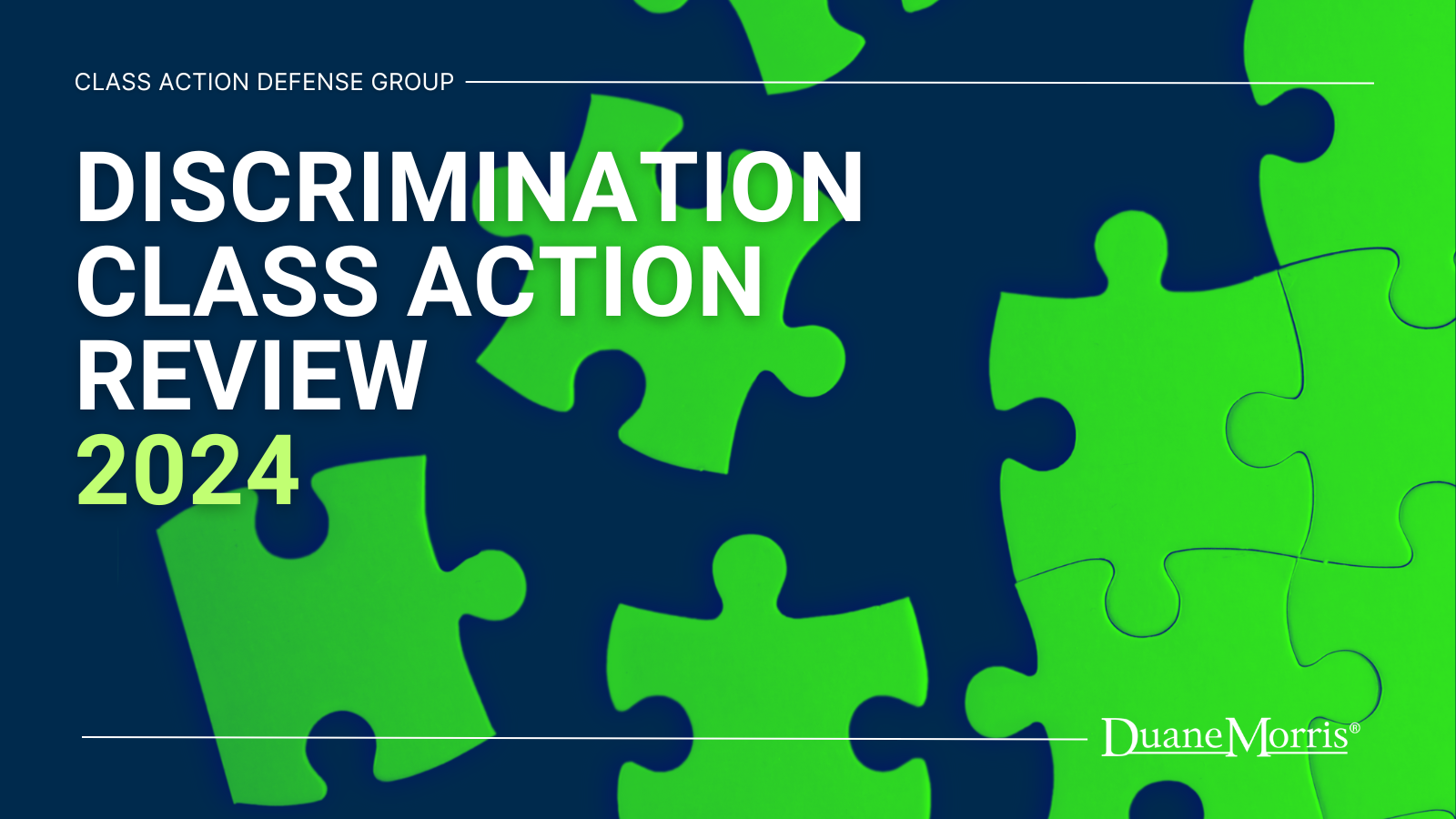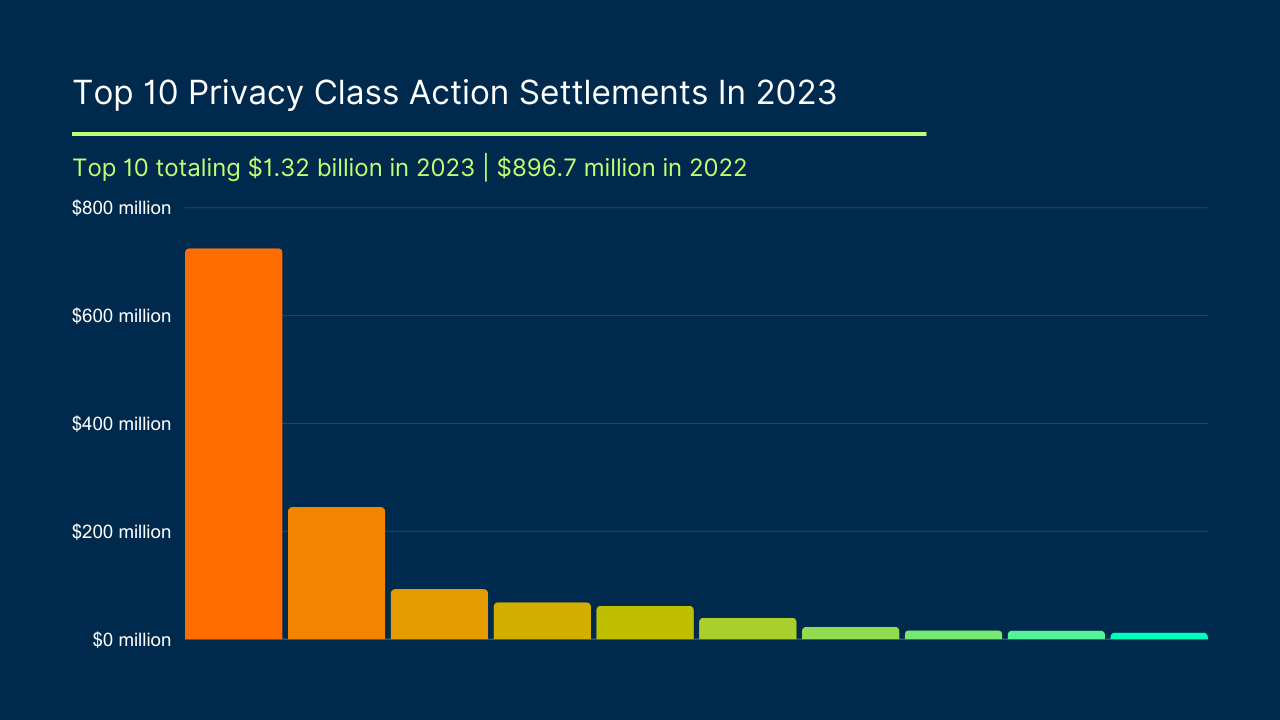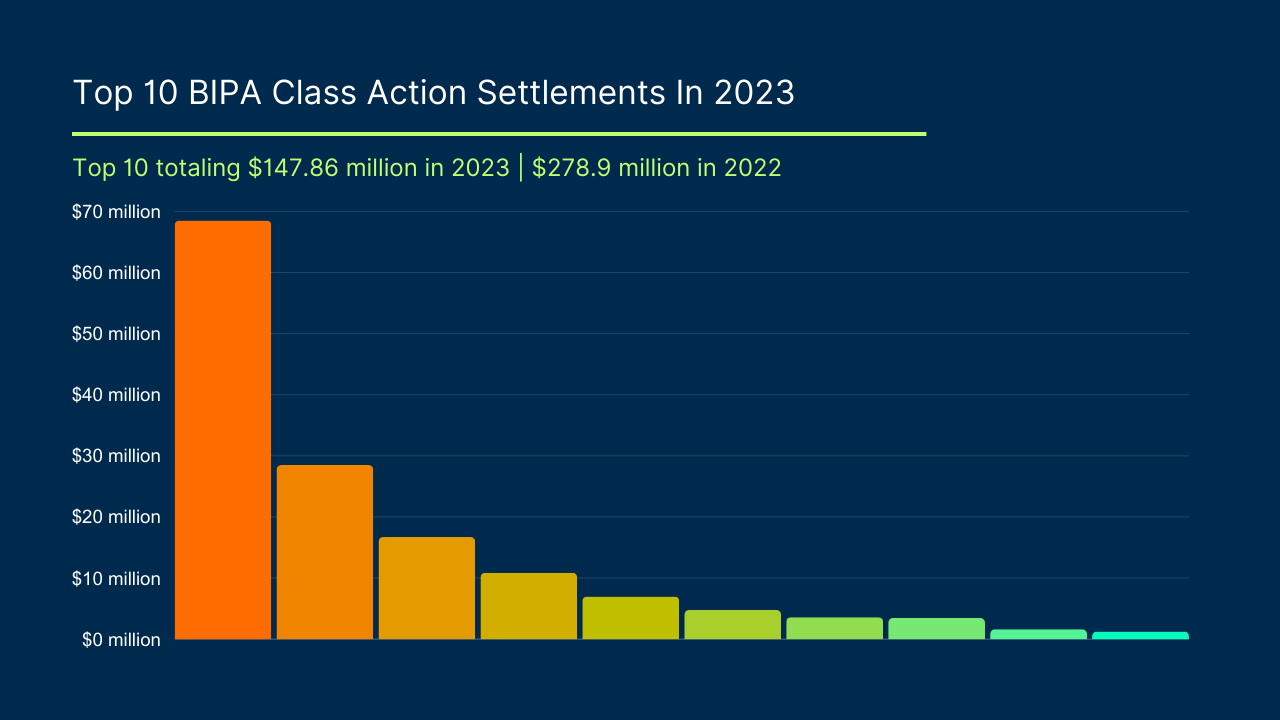 By Gerald L. Maatman, Jr., Maria Caceres-Boneau, and Gregory S. Slotnick
By Gerald L. Maatman, Jr., Maria Caceres-Boneau, and Gregory S. Slotnick
Duane Morris Takeaways: On February 29, 2024, Judge Andrew Carter of the U.S. District Court for the Southern District of New York in Lee v. Grove Group Advisors LLC, et al., Case No. 1:20 Civ. 05937 S.D.N.Y. (Feb. 29, 2024), issued an order granting a motion to enforce a settlement agreement reached between the parties nearly three years after it was initially submitted for approval, and more than two years after the Court ultimately approved the agreement as fair and reasonable. The decision underscores the importance of a Court’s retention of jurisdiction over a case in order to enforce or otherwise apply the settlement of a case, and also serves as a reminder that employers and individual business executives who sign settlement agreements to end litigation should always be prepared to make all agreed-upon payments, or else risk the ire of a Judge, the Court’s enforcement of the agreement, and additional interest on the original settlement amount.
Case Background
According to the Complaint filed by the Plaintiff on July 30, 2020, Plaintiff began working on August 9, 2019 for the defendants – including an investment advisory company and its Chief Executive Officer/Co-Founder (together, “Defendants”) – as a “Manufacturing and Engineering Director” for which Defendants agreed to pay Plaintiff an annual salary of $160,000. Complaint (“Compl.”) at ¶¶ 12, 21-22. Plaintiff claims that Defendants also agreed to provide him with fifteen (15) days of PTO per year. Id. at ¶ 23. According to Plaintiff, in January 2020, Defendants ceased paying him his wages, told him that they’d pay him “soon,” and after he continued to work for Defendants, in February 2020, Defendants sent him a letter stating that his last day of employment was February 13, 2020. Id. at ¶¶ 26-33. The letter also informed Plaintiff that Defendants owed him approximately $24,000 for the period from December 22, 2019 to February 13, 2020, that Defendants did not have the means to pay him at that time, but that they were making “every effort to raise money for the company in order to pay our liabilities, yours included.” Id. at ¶ 32.
Plaintiff alleges that on May 15, 2020, Defendants paid him only $3,846.15, and that Defendants did not pay him the balance of what they owed him despite Plaintiff trying to reach out to Defendants on numerous occasions in an attempt to get paid, the only reply from Defendants being “we will let you know when we get the funds to pay you.” Id. at ¶¶ 34-35. Plaintiff claimed entitlement to $20,153.87 in unpaid earned wages for work performed for Defendants, as well as sixty-four (64) hours of accrued, unused PTO valued at $4,923.07 – totaling $25,076.94. Id. at ¶¶ 36-38.
According to the Court Order, the parties reached agreement at mediation and submitted an initial proposed settlement agreement for Court approval on May 27, 2021, as required by Cheeks v. Freeport Pancake House, Inc., 796 F.3d 199 (2d Cir. 2015). Order at 1. On December 28, 2021, after the parties filed a revised agreement, the Court approved the agreement as fair and reasonable, and it provided for payment by Defendants of a settlement sum of $14,990 by January 11, 2022. Id. at 1-2. Critically, the Court retained jurisdiction over the case to hear any motion to enforce or otherwise apply the settlement. Id. The Order stated that Plaintiff now sought to enforce the agreement, and that the Court provided Defendants with multiple opportunities to respond to the motion to enforce, including a December 4, 2023 order to show cause as to why Plaintiff’s motion to enforce should not be deemed unopposed. Id.
The Court’s Decision
The Court determined that because the parties reached a binding and enforceable agreement, Plaintiff’s motion to enforce the agreement should be granted. Id. The order confirmed that to date, Defendants had not paid any of the settlement sum, and that after counsel for Defendants’ request to withdraw was granted by the Court, Plaintiff filed a motion to enforce the settlement on April 12, 2023. Id. at 2. Defendants also ignored the Court’s repeated warnings to obtain new counsel. Id. On June 5, 2023, the Court issued an order to show cause as to why the Plaintiff’s motion should not be treated as unopposed, and provided another follow-up to Defendants by way of a December 1, 2023 filing. Id. Defendants did not respond, and the Court noted that they have not made any filing on the docket since February 9, 2023. Id. at 2-3.
The Court set out the standard of review for settlement agreements, which it stated are interpreted according to general principles of contract law. Id. at 3. The Court found that when a judge determines a settlement agreement was in fact reached, the agreement is binding on the parties, and that the parties must be in agreement on all essential terms. Id. The order confirmed that once a settlement agreement is reached, it constitutes a binding and conclusive contract, and that the parties are bound to its terms even if they have a later change of heart. Id. at 4.
The Court stated that it may only vacate a stipulation of settlement upon a showing of good cause, such as fraud, collusion, mistake, duress, lack of capacity, or where the agreement is unconscionable, contrary to public policy, or so ambiguous that it indicates by its terms that the parties did not reach agreement. Id. at 5.
In this case, the Court found no such showing of good cause to vacate the agreement, since it was written and signed by the parties and approved by the judge. Id. In considering the totality of the circumstances, the Court ruled that Plaintiff established that the signed settlement agreement is enforceable. Id. at 6. As a result, the Court granted Plaintiff’s motion to enforce the agreement, as well as Plaintiff’s request for 9% interest per year from the date the funds became due (January 11, 2021) to the date the funds became owed (April 12, 2023 – the filing date of the motion to enforce settlement). Id. The Court calculated such interest to be $3,034.55, and ultimately held Plaintiff is entitled to recover from Defendants, individually, jointly and severally, the total amount of $18,024.55. Id.
Implications For Businesses
The Lee decision illustrates that under appropriate circumstances, such as the settlement of an unpaid wage claim providing for a judge to retain jurisdiction, a court is apt to grant motions to enforce a settlement agreement without hesitation (and also award interest on same). In this case, the Court provided Defendants with numerous opportunities to defend themselves and appear on the docket. However, Defendants’ silence spoke volumes, and the Court ultimately approved Plaintiff’s motion to enforce the valid agreement previously reached and submitted on the docket by the parties.
Businesses and their executives should always ensure their intent and unquestioned ability to make agreed-upon payments as part of any litigation settlement agreement (and to their employees), whether an unpaid wage claim filed on the docket for Court approval in the Second Circuit, or a private, confidential breach of contract claim. This is especially so when a Court retains jurisdiction over a filed matter to enforce any settlement agreement reached. Of course, employers should also make sure that they follow Court Orders and meet Court deadlines to a tee!







